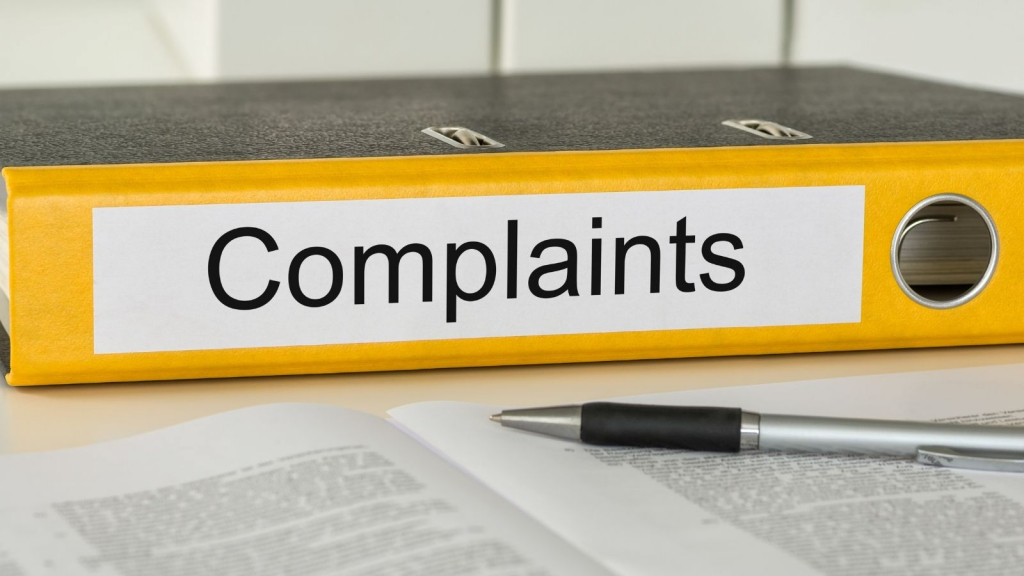Why do I need an accessible complaints procedure?
Happy customers are the top priority for a thriving business and it’s important to have a robust system in place for customer feedback, both negative and positive. 1 in 5 people is registered disabled in the UK, which is a lot of existing and potential customers that may not have a voice.
Predominantly, barriers are unintentional and are the result of decisions being made without accessibility being considered. They can be caused by outdated attitudes to disability, limited ways for customers to communicate, and inaccessible building design. But luckily, with a little consideration and increased awareness, you can ensure ALL your customers feel happy and heard. Below are our top tips for creating an accessible complaints procedure.
Flexibility is Key
Your business may have been running for many years and at first glance, it seems that your complaints procedure is adequate. This doesn’t mean you shouldn’t review it. Do your customers have to write their complaint, either through a letter or via your website? This could be problematic for your disabled customers who face challenges with their dexterity. An alternative could be to scribe their complaint for them and then read it back to them to check you have the details correctly. Is there only a telephone number to call and record a complaint? This could be a challenge for your deaf and hard-of-hearing customers. An alternative would be to become familiar with the text relay service and offer that as an alternative. It can seem daunting at first but there are lots of options out there to assist your business to include the disabled community.

Ask what someone needs
Rather than guess, why not provide an opportunity for your customers to feedback on how they would like to communicate. Most businesses ask whether a customer would like to communicate via email, text or letter. Why not include the Text Relay Service or the opportunity for a call back from a designated staff member? At the same time, it would show awareness to ask if it is better to call at a certain time in the day. Some medicines can make people sleepy after taking them. Others experience the symptoms of their disability more severely at specific parts of the day. Providing your customers with the means to choose when and how they would like to be contacted will ensure they can be heard.
Be informed and prepared – Disability Awareness
Have you and /or your staff had disability awareness training? A central theme of these workshops is effective communication. They can show you ways to communicate with your disabled customers, using correct language and terminology. They can also highlight barriers disabled people may face in accessing your business and how to overcome them. For more information, you can call a member of our staff or check out details on our website here.
Text Relay Service
If a customer chose to make a complaint via the relay service, do you know how to use it? The text relay service is an option for your deaf and hard of hearing customers and involves a third party who relays the conversation in real-time. For further details access their website.
Easy read or large text
Is your complaints policy easy to read? The Plain English Campaign has several free tools on its website to support you when writing policies and documents. They also offer a Crystal Clear Mark to indicate the clarity of a document. For more details, you can access their website. Also, can the complaints procedure be offered in large text or braille for your visually impaired customers?
Communication Professionals
Sometimes a complaint may need to be aired face-to-face and your customer needs communication support. This could include a British Sign Language interpreter, notetaker or lip speaker. Do you know how to book one? The National Register for Communication Professionals working with Deaf and Deafblind People (NRCPD) have a comprehensive and countrywide list of professionals that can be booked for your meeting. For more information, access their website.
Nothing about me without me!
Are you aware of the correct procedure for taking a complaint from a third party, such as a carer? Do not assume that a disabled person is happy for you to talk to a support worker or advocate. Always check that this is the case first and be open to communicating with others on your customer’s behalf if this is requested.
Language matters
When communicating with disabled customers, focus on their access requirements rather than their disability. It is okay to use terms and phrases such as ‘disability’, disabled’ and ‘people with disabilities’. Don’t use the terms ‘handicapped’, ‘special needs’ or ‘differently-abled’. Ask your customer which term they prefer if they have a disability.
Remember that good intent goes a long way. Don’t pretend to understand the customer if you haven’t. Instead, state that you don’t and ask if they can repeat it differently. It’s important to show that you care about your customer being heard.
More insight
There’s plenty of advice and support out there for businesses to improve their accessibility and reach their disabled customers. Follow us on Twitter @EnhanceTheUK for more practical tips or please contact us directly to enquire about our services.



